Quick heads up: this one’s too long for email so ya might wanna open in app ツ
I was digging through the used books section at a local thrift store last weekend (one of my favorite things to do!) when I overheard a conversation that made me pause between a coverless Nietzsche and some heavily-dog-eared copy of Atlas Shrugged. Two twenty-somethings were discussing how capitalism was "literally destroying everything," their voices carrying that particular brand of righteous certainty that makes you want to both engage and flee simultaneously.
"It's just so gross how everything is about profit," one said, adjusting her iPhone in its artisanal leather case while sipping what appeared to be a rather pricey coffee concoction.
I found myself staring at the irony with something between amusement and exhaustion. Here we were, in a thrift store—itself a beautiful example of market efficiency and resource reuse—surrounded by the material abundance that capitalism had produced, and yet the conversation was about capitalism's inherent evil. The girl criticizing profit motives was wearing clothes that had been designed, manufactured, and distributed through global supply chains of breathtaking complexity. She would drive home in a car assembled by thousands of specialized workers, on roads built by countless others, to a home powered by an electrical grid that represents one of humanity's greatest collaborative achievements.
And all of this—literally all of it—exists because of the system they were condemning.
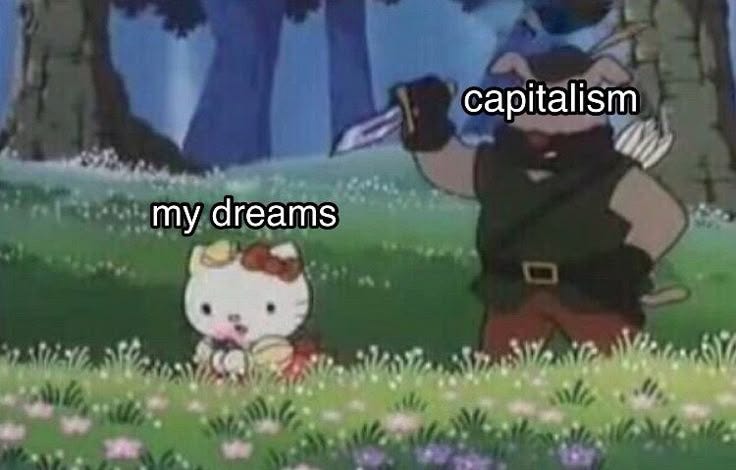
Don’t get me wrong, I've also found myself caught between loving capitalism and feeling exhausted by what it enables. I genuinely believe that market economies are humanity's greatest discovery for organizing complex societies, yet I also feel overwhelmed by the endless stuff, the constant upgrading, the way everything seems designed to make us want more. As such, I've become increasingly intentional about my own spending—buying books secondhand, avoiding the dopamine hits of impulse purchases, questioning whether I actually need whatever shiny thing is being marketed to me this week (the answer is usually, no.)
But here's what frustrates me about most critiques of capitalism: they mistake the symptom for the disease. The problem isn't that markets exist; it's that we've abdicated personal responsibility for how we participate in them.
I've been seeing this particular quote everywhere lately—on 𝕏, Substack Notes, always racking up thousands of likes from people who think they've just delivered the ultimate capitalism takedown. John Maynard Keynes once said “capitalism is the extraordinary belief that the nastiest of men for the nastiest of motives will somehow work for the benefit of us all." He meant it as criticism—and honestly, when you first hear it, it does sound on point. How could selfish behavior possibly create good outcomes for everyone? It violates everything we're taught about morality and cooperation.
But the more I've observed how markets actually function, the more I've come to see Keynes' sarcastic critique as an almost miraculous description of human coordination at scale.
Think about it: every morning, millions of people around the world wake up thinking primarily about their own interests—paying their bills, advancing their careers, providing for their families—and through the pursuit of these "selfish" goals, they somehow create abundance for everyone else. The baker doesn't bake bread because he cares about feeding the community; he bakes it because he wants to make money—and perhaps, he also likes baking. But in pursuing his self-interest, he feeds people. The software engineer doesn't write code out of altruism; he does it because programming pays well and he finds it intellectually satisfying. But his "selfish" work creates tools that improve millions of lives.
This is what Adam Smith understood when he wrote about the "invisible hand"—not that markets are perfect or that greed is good, but that properly structured systems can channel individual self-interest toward collective benefit. It's perhaps the most elegant solution to a coordination problem that humanity has ever devised.
And it works. God, does it work.
I think about Elon Musk, who seems to be one of those rare individuals genuinely motivated by humanity's long-term survival—making us a multi-planetary species, accelerating sustainable energy, advancing brain-computer interfaces that might solve neurological conditions. Yes, he profits enormously from these ventures, but watching his relentless focus on civilizational problems suggests something deeper than pure self-interest. Still, the system works whether motivations are purely selfish or genuinely altruistic. Jeff Bezos built Amazon around genuine customer obsession—he really did want to make shopping easier and more convenient. But the genius of the system is that his focus on delighting customers also happened to create a massive competitive advantage and incredibly profitable business. Customer satisfaction and business success aligned perfectly. His pursuit of profit gave us same-day delivery and transformed how commerce works globally.
Blake Scholl at Boom is trying to solve one of aviation's biggest frustrations: why it takes longer to fly across the ocean today than it did in the 1970s with the Concorde. He's working to bring back supersonic passenger flight—planes that can cut a 7-hour flight to 3.5 hours—but without the Concorde's problems of being too expensive and too loud. His genuine passion for the engineering challenge happens to align with building a profitable company, and if he succeeds, he'll make the world smaller and more connected. Win-win.
What's remarkable about capitalism is that it doesn't require people to choose between doing well and doing good. Whether you're motivated by genuine altruism like Elon seems to be, customer obsession like Bezos, or pure engineering passion like Scholl, the system rewards you for creating value that others want. It transforms self-interest into social good without requiring anyone to be particularly virtuous.
Sometimes I play with this thought experiment: if you could rewind human civilization and run it back a thousand times from different starting points, how often would we end up with something resembling market economies?
I suspect the answer is: nearly every time.
Once societies advance beyond basic subsistence, certain patterns seem to emerge naturally. People specialize in what they're good at. They trade with others. They develop systems for storing and transferring value. They create mechanisms for coordinating complex projects. They compete to provide better goods and services. What we call "capitalism" is really just the formalization of these natural human tendencies.
Archaeological evidence suggests that trade networks existed tens of thousands of years ago. Ancient civilizations developed sophisticated commercial laws. Even in supposedly communist societies, black markets emerge spontaneously because people naturally want to exchange goods and services on their own terms.
It's as if markets are a kind of social technology that humanity keeps rediscovering because they solve fundamental problems about how groups of people can work together without requiring perfect knowledge or perfect altruism.
I recently wrote a piece called "the world you hate was built by the men you mock," and I keep returning to this idea. The infrastructure we take for granted—the internet, modern medicine, global transportation, the device you're reading this on—wasn't created by governments or committees or people motivated primarily by altruism. It was built by individuals and companies pursuing their own interests within market systems that rewarded innovation and efficiency.
This doesn't mean capitalism is perfect or that all outcomes are just. But it does suggest that markets aren't some historical accident we can easily replace with something better. They emerge because they work.
Here's where the anti-capitalist narrative gets particularly amusing to me. I'll often hear people get all poetic about how "money wasn't always the driving force" in human creativity, how artists used to create for pure love of beauty rather than crass commercial considerations. They point to the Renaissance as some golden age of artistic purity, when painters and sculptors worked from divine inspiration rather than market incentives.
It's a lovely story. It's also completely wrong.
Take Michelangelo and the Sistine Chapel—perhaps the most iconic example people cite of "art for art's sake." The truth is that Michelangelo's contract for the ceiling was one of the most capitalistic arrangements you could imagine. Pope Julius II didn't wake up one morning and decide to gift humanity with beautiful art. He commissioned the work as a calculated investment in his own legacy and the Church's political power. Michelangelo didn't paint those frescoes because he felt moved by the Holy Spirit; he painted them because he negotiated a lucrative contract that would set him up financially for years.
The details are even more deliciously capitalist than most people realize. Michelangelo initially resisted the commission—he considered himself a sculptor, not a painter, and the ceiling work would take him away from more profitable marble projects. So Julius II had to sweeten the deal, eventually agreeing to pay 3,000 ducats (roughly $600,000 in today's money) plus materials and assistants. Michelangelo drove a hard bargain, negotiating not just his fee but creative control, timeline flexibility, and even housing arrangements.
During the four years it took to complete the ceiling, Michelangelo was essentially running a small business. He hired and managed assistants, sourced materials, dealt with supply chain issues when certain pigments were delayed, and even had to navigate the political complexities of working for a client who was simultaneously waging military campaigns across Italy. When Julius II fell behind on payments—as clients do—Michelangelo threatened to walk away from the project entirely.
This wasn't some pure artistic calling divorced from financial considerations. This was a sophisticated commercial transaction between a skilled craftsman and a wealthy patron who understood the value of investing in cultural capital. The beauty we admire today exists precisely because both parties were motivated by their own interests: Julius II wanted a legacy, Michelangelo wanted financial security and artistic recognition.
The entire Renaissance, in fact, was built on what we would now recognize as venture capitalism. The Medici family didn't fund artists out of the kindness of their hearts—they were building a cultural empire that enhanced their political influence and social standing. Artists competed for patronage, developed personal brands, and built networks of influential clients. They were entrepreneurs as much as creators.

Even the great masters understood that sustainable artistic practice required sustainable economics. Leonardo da Vinci spent enormous energy on commercial engineering projects and military consulting to fund his artistic experiments. He designed weapons, planned festivals, and even worked on drainage systems—all to generate the income that allowed him to pursue his more experimental interests.
When people romanticize pre-capitalist creativity, they're usually imagining a world that never existed. Artists have always needed to eat. Materials have always cost money. Ambitious projects have always required financial backing. The difference isn't that money didn't matter in the past; it's that the systems for organizing and distributing resources were less efficient, less transparent, and often more brutal than what we have today.
I find it telling that the same people who criticize capitalism for "commodifying art" are usually the first to complain when artists can't make a living from their work. They want the pure artistic vision without acknowledging that sustainable creativity requires sustainable economics. They want the Sistine Chapel without admitting that it exists because someone was willing to pay for it.
What strikes me most about market economies is how they solve the innovation problem. In systems where resources are allocated by committee or central planning, the incentive is to avoid risk, to maintain stability, to keep doing what has always been done. But in competitive markets, stagnation equals death.
Compare NASA's space program—impressive but bureaucratic, slow-moving, constrained by political considerations—with SpaceX's rapid iteration and breakthrough achievements. Or look at the Soviet Union's technological stagnation versus the constant innovation in capitalist societies. When people can profit from solving problems, they become remarkably creative at solving problems.
The difference isn't that government employees are less intelligent or motivated than private sector workers. It's that the systems create different incentives. In bureaucracies, the penalty for failure is often greater than the reward for success, so rational actors play it safe. In markets, the potential rewards for breakthrough innovations can be enormous, so people take risks.
This is why North Korea looks like a prison—uniform, gray, stagnant—while South Korea buzzes with creativity and growth. It's why East Berlin was a monument to architectural mediocrity while West Berlin thrived. When there's no incentive to build, improve, or innovate, people don't. When there's no reward for excellence, excellence becomes rare.

Ayn Rand understood this when she wrote about the "prime movers"—the individuals whose rational self-interest drives progress for everyone. She wasn't advocating for callous disregard of others; she was recognizing that societies flourish when they reward people for creating value, and they stagnate when they punish success or redistribute rewards without regard to contribution.
But here's where I part ways with pure laissez-faire thinking: markets work best when participants take responsibility for their choices. The system breaks down when people abdicate their agency—when they buy things they don't want or need, when they prioritize cheap dopamine hits over long-term satisfaction, when they externalize the consequences of their decisions onto society.
Like I said above, I've become much more intentional about my own participation in consumer culture. I buy fewer things, but I try to buy better things. I've mostly stopped the mindless accumulation that characterized my twenties. When I do purchase something, I ask myself: Do I actually want this, or am I just responding to marketing? Will this add genuine value to my life, or am I seeking the temporary satisfaction of acquisition?
This isn't anti-capitalist; it's being a more thoughtful capitalist. Markets respond to demand, so if we demand better products, more sustainable practices, higher quality goods, that's what we'll get. If we demand cheap, disposable junk, that's what we'll get.
The problem with many critiques of capitalism is that they blame the system for providing what people actually choose rather than asking why people make those choices. Yes, companies design products to be addictive. Yes, marketing exploits psychological vulnerabilities. But we still have agency. We can still choose differently.
When I see someone complaining about corporate greed while scrolling TikTok on their iPhone, drinking a Starbucks latte they ordered through an app, I don't see a victim of capitalism. I see someone who has benefited enormously from market innovations while refusing to take responsibility for their own participation in the system they claim to despise.
Perhaps what I find most remarkable about capitalism is how it coordinates the behavior of billions of people without requiring central control or perfect information. Right now, somewhere in the world, someone is mining lithium for batteries, someone else is designing software, another person is growing coffee, and yet another is writing essays about economic systems. None of us know each other. None of us are following a master plan. Yet somehow our individual actions combine to create an incredibly complex, functioning global economy.
This coordination happens not because anyone is in charge, but because markets provide information through prices and incentives through profit opportunities. When something becomes scarce, its price rises, signaling people to use less of it or find alternatives. When there's an unmet need, entrepreneurs emerge to fill it. When inefficiencies exist, someone has an incentive to eliminate them.
No central planner could possibly have the information needed to coordinate activities at this scale. No committee could make the millions of decisions required to allocate resources efficiently across a global economy. The beauty of markets is that they harness local knowledge and individual initiative to solve problems that would be impossible to address through top-down planning.
This is why command economies consistently fail to match the prosperity and innovation of market economies. It's not because their leaders are evil or incompetent (though they sometimes are). It's because the coordination problem is simply too complex for any central authority to solve.
I understand why people are attracted to anti-capitalist ideas. Markets can seem cold, impersonal, unfair. There's something appealing about the idea that we could replace competition with cooperation, profit motives with altruism, individual striving with collective care.
But every time societies have tried to organize themselves around these alternative principles at scale, the results have been disappointing at best and catastrophic at worst. The Soviet Union promised to create a workers' paradise and delivered bread lines, environmental destruction, and political oppression. Communist China attempted to eliminate market incentives and produced the Great Leap Forward, one of history's greatest man-made famines.
This isn't because the people advocating for these systems had bad intentions. It's because they misunderstood human nature and the complexity of economic coordination.
The uncomfortable truth is that capitalism works not despite human selfishness, but because of it. It doesn't require people to be saints. It doesn't depend on everyone suddenly becoming altruistic. Instead, it creates a framework where people pursuing their own interests—wanting to provide for their families, build something meaningful, gain recognition for their efforts—end up serving the broader social good.
The fact that I can walk into any grocery store and find fresh produce from around the world, regardless of season. The reality that diseases that routinely killed children a century ago are now easily preventable. The miracle that I can communicate instantly with people anywhere on the planet. The abundance of books, music, art, and entertainment available at minimal cost.
None of this was inevitable. It required millions of people working in their own self-interest within systems that rewarded innovation, efficiency, and service to others. It required entrepreneurs willing to risk their capital on unproven ideas. It required consumers willing to try new products and abandon old ones. It required investors willing to fund experiments that might fail.
Is this system perfect? Of course not. Are there legitimate criticisms of how markets currently operate? Absolutely. Should we work to address inequality, environmental challenges, and other problems that markets alone can't solve? Without question.
But the solution isn't to abandon the system that has lifted billions of people out of poverty, created unprecedented prosperity, and driven innovation at a pace that would have seemed magical to previous generations. The solution is to become more thoughtful participants in that system—as consumers, as investors, as citizens, as human beings capable of making choices about how we want to live.
As I paid for my secondhand books that day at the thrift store—books that had been published by profit-seeking companies, written by authors hoping to make a living from their work, printed on machines built by engineers trying to advance their careers—I couldn't help but smile at the irony. Even this small act of conscious consumption was made possible by the very system the young women had been criticizing.
Walking to my car, arms full of philosophy and fiction that cost me less than that artisanal coffee they'd been drinking, I found myself thinking about what it actually means to be a thoughtful participant in this system we've inherited.
Maybe it starts with something as simple as pausing before purchases. Not from some anti-materialist ideology, but from genuine curiosity: Do I actually want this? Will it serve me in six months? Am I buying it to solve a real problem or to fill some vague dissatisfaction? I've discovered that this small practice of intentionality has changed not just what I buy, but how I think about desire itself.
Or maybe it's about supporting businesses that align with your values—not through performative boycotts, but through the quiet power of where you choose to spend your money. The local bookstore instead of Amazon sometimes. The company that treats its workers well. The entrepreneur who's building something you actually believe makes the world better.
There's something to be said for understanding how the things you love actually get made. Tracing the supply chains, learning about the people and processes behind your daily conveniences. Not to guilt yourself out of participation, but to participate more consciously. When you understand the miracle of coordination that brings coffee from Ethiopian highlands to your local cafe, you might drink it differently.
And perhaps most importantly: creating value yourself, in whatever form that takes. Writing something meaningful. Building something useful. Solving a problem someone actually has. Contributing to the system rather than just consuming from it.
Because here's what I keep coming back to: capitalism isn't some external force imposing itself upon us. It's us. It's the manifestation of millions of individual decisions, day after day, about how we want to create value and trade with each other. Which means we have more power to shape it than the critics—or the defenders—often realize.
The extraordinary belief, it turns out, isn't so extraordinary after all. It's just what happens when you give people the freedom to solve problems in exchange for reward. Those girls in the thrift store, complaining about capitalism while surrounded by its fruits, couldn't see what seems obvious to me: every innovation that makes their critique possible—from the printing press that published the books around us to the global supply chains that delivered their coffee—exists because someone, somewhere, was allowed to pursue their own vision of what the world needed.
And maybe that's the real miracle. Not that selfish people accidentally create good outcomes, but that a system emerged which lets passionate, driven, curious humans—whether they're motivated by profit, problem-solving, or genuine desire to help—channel that energy into making things better for everyone else.
I'm still thinking about those two girls as I write this, wondering if they ever made the connection between their critique and their circumstances. Probably not. But that's okay. The beauty of capitalism is that it works whether you understand it or not, whether you appreciate it or not, whether you participate consciously or unconsciously.
It just keeps working, one small transaction at a time, one innovation at a time, one person choosing to solve a problem in exchange for the chance to build something better. And honestly, in a world full of systems that promise everything and deliver disappointment, I'll take the one that delivers abundance while promising nothing but the freedom to try.
That feels like something worth defending, even if it makes me sound like exactly the kind of person who'd write a love letter to market economics.
Especially then, actually.
Until next time, xo
As always, thanks for reading with me. Writing has been an integral part of my journey so if you enjoyed this post, please consider hitting the like button and/or sharing it to help boost its visibility. I appreciate you so much. xo
tangentially related —
the faux self-care industrial complex
There's something deeply ironic about how "self-care" is marketed to us today. What began as a concept focused on genuine well-being has transformed into an industry that profits from our insecuritie…
The Rot of Decelerationist Thinking
Last week (April 11), Sam Altman—CEO of OpenAI—sat down for what should have been a landmark TED interview: a state-of-the-moment conversation about intelligence, responsibility, and the tools reshaping civilization. Instead, it became a showcase for a deeper sickness in our institutional discourse. TED, once the playground of bold thinkers and builders, now performs a different function. It soothes elites with intellectualized fear, rebranded as moral concern. It asks not
the slow, private war between who we are and who we perform
just needed to get this out of my system. if you’re in a similar place right now, maybe this will find you.







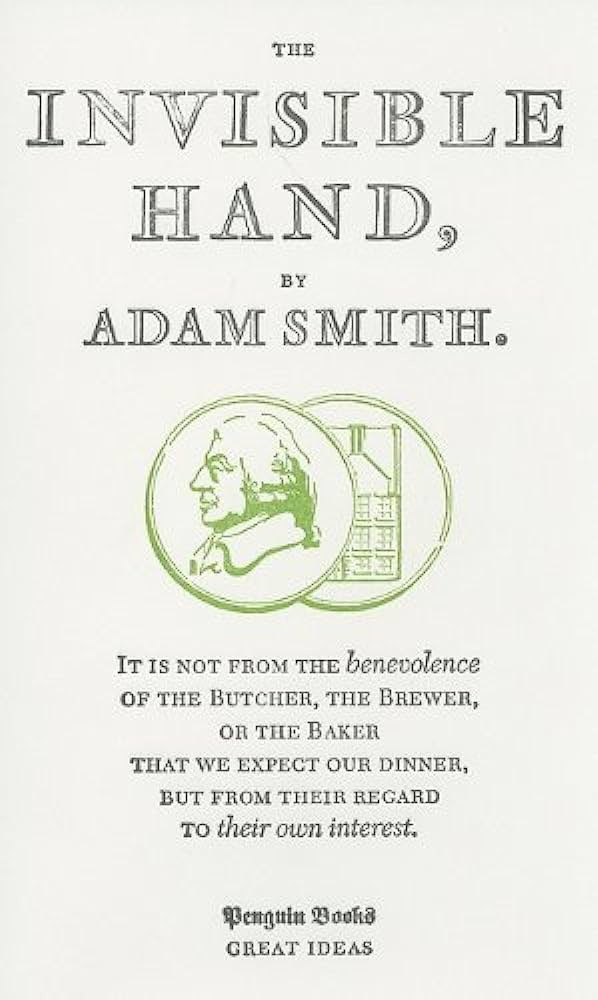


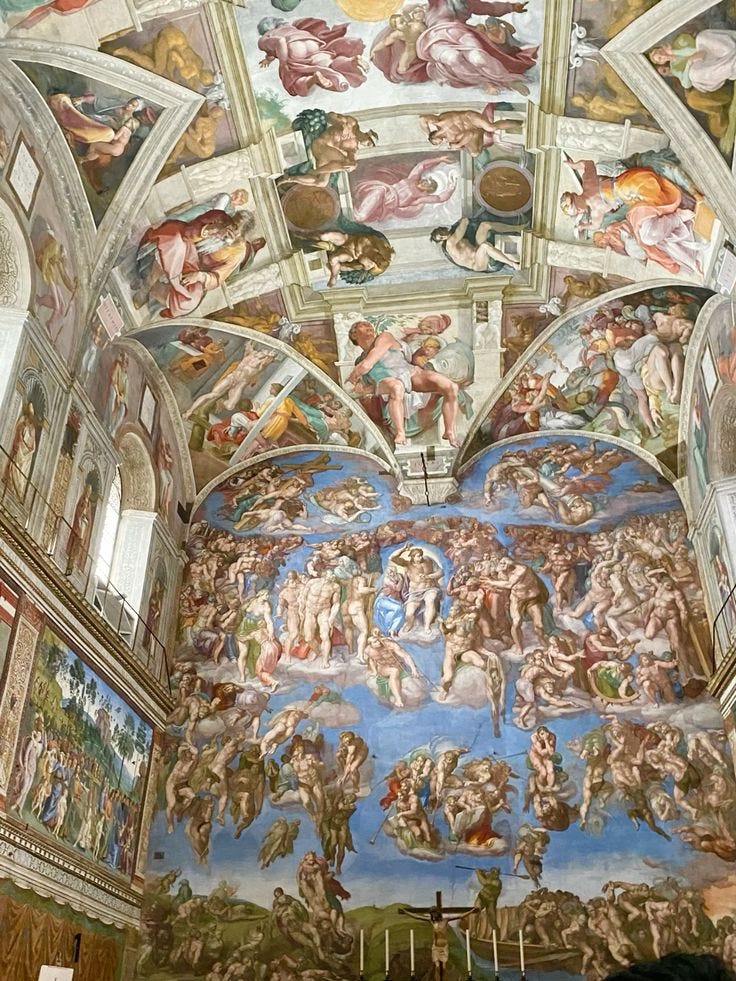
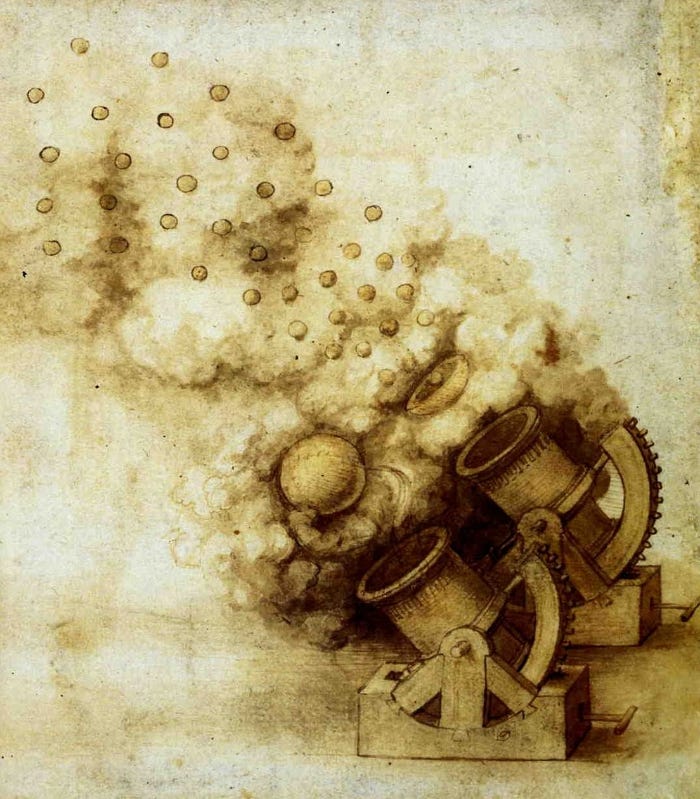




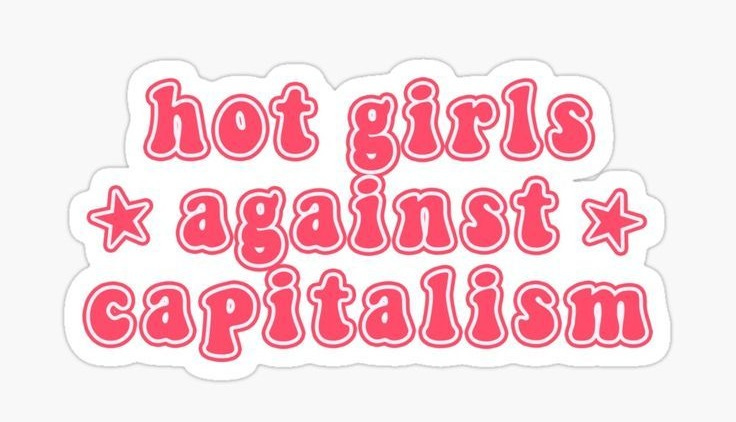










Thank you for sharing your thoughts on a complex and emotionally charged subject. When it comes to capitalism, the devil is in the details. In short, what variant of capitalism are you talking about? The American version? The German model? In Japan? There are significant differences between them. The "magic" of capitalism lies in the fungibility of its assets. Value can be liberated from fixed assets to create new wealth in a virtuous spiral. The problem with capitalism is how the market functions.
Does the variant create market failures? Markets work well for people who have social, cultural, and financial capital. Not so well for those who don't. For example, a single parent working at a minimum wage job in the US would be hard-pressed to provide for themselves, leading to chronic stress, which leads to a myriad of health problems. In other words, the person is in a sink-or-swim situation. This form of capitalism is known as capitalism sauvage. It's quite popular with those on the right, who usually have substantial social, cultural, and financial capital and are looking to accumulate even more.
The important question is who gets to decide the rules of the game. The people? The oligarchs? The plutocrats? The billionaires? Is the market going to be a level playing field, or will there
be rules in place that tilt the playing field in the direction of a few, who will profit handsomely at the expense of the population at large?
Looking at what has happened over the last forty-five years, it is remarkable how much wealth in the US has been transferred from the bottom ninety percent of the population to the top ten percent, and in particular, to the top one percent. Are these societal outcomes you are comfortable with? Are you comfortable with the number of corporations and multimillionaires that pay little or no tax, while thirty million Americans live below the poverty line and almost one million are homeless?
It is a good thing to be mindful about what and how much you consume. However, there are important structural issues that are beyond the scale and scope of what you can do as an individual. The same can be said about climate change. I can reduce my carbon footprint, but it's all for naught if the government decides to subsidize the oil industry so it can increase its production.
I am not optimistic about our collective future. Monied interests have an organizational lock on the political process. In my opinion, Western civilization has had its time, and we will see a collapse of the global order before the end of the century.
For me, the interesting question is what comes next? A techno-feudal order? Scattered groups of eco-anarchists? I guess that's why I' writng science fiction.
In this long and well-written essay, the author presents "capitalism" as a singular thing ("free markets") and asks the binary question "Is capitalism good or bad?". She ends up with the old "better than all the other options" argument.
What I found missing was any discussion of the tendency for the "winners" in a market economy to use their power to reduce workers' wages to serf-like levels and to buy influence over the workings of government to further their financial interests (aka corruption).
Here is my counterpoint drawing on the wisdom of Abraham Lincoln and a couple of research economists:
https://bairdbrightman.substack.com/p/money-is-power
---
I really liked your recent essay about taste, Stepfanie. One of the best things I've read here. Really nice to see a few people like you here on Substack tackling big important topics with long-form essays! You might enjoy Lauren Reiff's writing at https://laurenreiff.substack.com/.